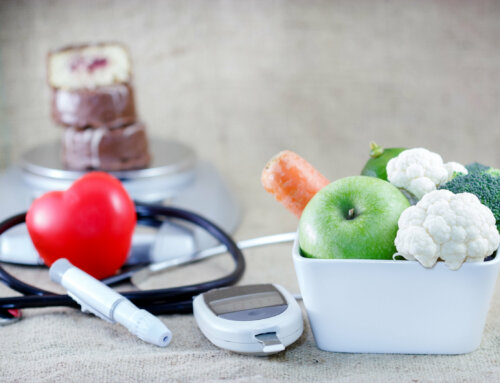Teaching has always been my passion and I am happy when patients ask me questions relating to their diabetes during our weekly management sessions. There are no silly ones and when time permits, I try to expand on the information so they have a complete understanding. This helps them follow through with their goals and improved diabetes care. Let’s review some of the questions I have recently answered.
Q & A
- Is type 2 diabetes completely cured with lifestyle changes?Most research to this date states that “unless bariatric surgery is performed, type 2 diabetes is controlled but not cured.” In Diabetes Care, September 2014 issue, researchers found “data analyzed from 122,781 adults with type 2 diabetes who practiced a healthy lifestyle for 7 years. Only 140 achieved complete remission defined as having an A1C of less than 5.7%”. The rates of complete remission were better for those most recently diagnosed and for those not given any oral diabetes medications. Although not curable, the good news is that diabetes is a chronic illness that is extremely controllable and manageable with proper care. What is proper care? Proper care includes an early diagnosis (going for your routine medical care even when symptom free), basic education from a diabetes educator or dietitian when diagnosed, and implementing an exercise and eating plan. It should also include a 3-month medical follow up visit with a general physician (internist or family practitioner), specialist (endocrinologist), nurse practitioner or physician assistant. When lifestyle adjustments are not enough to control 3-month A1C values, then diabetes medication should be started by your health care provider. Choices of diabetes medication including pills and inject-ables for type 2 diabetes have grown over the last few years. Never change or stop taking your medication without consulting your physician.
- What about snacking when you have diabetes?One person says “nothing between meals” and another says “eat several small meals with snacks”. Patients may have different guidelines based on their medications and unique situation. When patients are on rapid-acting insulin injections prior to meals we suggest no snacking between meals except for a bedtime snack. A bedtime snack is suggested for all patients with diabetes to help prevent the sugar dump from the liver during the night. Since rapid acting insulin stays in the body for only 4-5 hours, eating a snack may cause blood sugars to soar between meals. Other diabetes patients may benefit from a small snack between breakfast and lunch, lunch and dinner, and prior to bed. Check with your health care provider or educator for the best suggestion for your situation. Snacks could include a medium-sized piece of fruit with 4 almonds, a small Greek yogurt (higher protein) or 2-4 crackers with a slice of cheese.
- What about the latest study that suggests eating a lot of saturated fatty foods is now fine even with diabetes? Does that mean I can eat butter, heavy cream, cheese and steak whenever I want?For every study presented, there seems to be another one that gives conflicting results. The take away message is there really is no medical professional who can give everyone the same specific diet plan. There are suggestions and recommendations made by your medical professional based on evidence studies, solid research and your particular situation. The research still shows that lowering LDL levels will help reduce heart disease, since they are connected. It also states that eating Omega-3 fatty acids leads to lower rates of cardiac events. The best method is individualization to each patient. Moderation with a varied diet and balance in all food groups still remains the most prescribed. Eating carbohydrates (including spinach and broccoli) will elicit a different response to blood sugars compared to eating donuts – so common sense is needed. Eating fats from nuts, seeds and olive oil should be part of a healthy meal plan, but it needs to be done in moderation due to high calories. It seems reasonable to continue moderation when eating steaks and other saturated fats. This would be the best advice until we are finally sure.
- Why and when should I test my blood sugars?Again, this is really based on the individual, what medications they take, what their A1C level is, along with the specific doctor’s recommendations. The more insulin a patient takes, the more information they should have available concerning blood sugars. They may need to test up to 8-10 times a day or wear a continuous glucose monitor. One current blood sugar testing method for those not on multiple insulin injections is called pairing. For example, test before a meal and then 2 hours after that same meal. This could give you information on how you tolerated that meal. More than a 40-50 point increase in blood sugar may mean you need to rethink your meal. You could try this with breakfast, lunch and dinner. You could also test prior to bed and then again in the morning. Remember to consult your physician when making changes to your testing routine. Blood sugar monitoring can give you information about an underlying undiagnosed infection, stress, how exercise affects you, if your medication is working properly or about your food choices and portion sizes.
These are just a sample of questions. During this New Year stay on top of your diabetes care by being educated and informed.
NOTE: Consult your Doctor first to make sure my recommendations fit your special health needs.






Leave A Comment